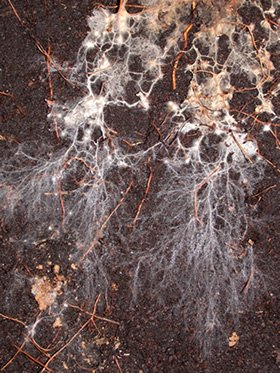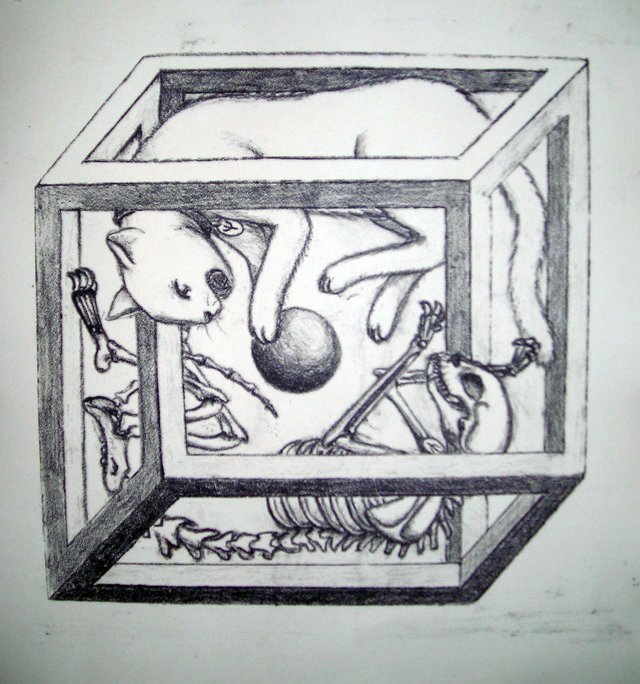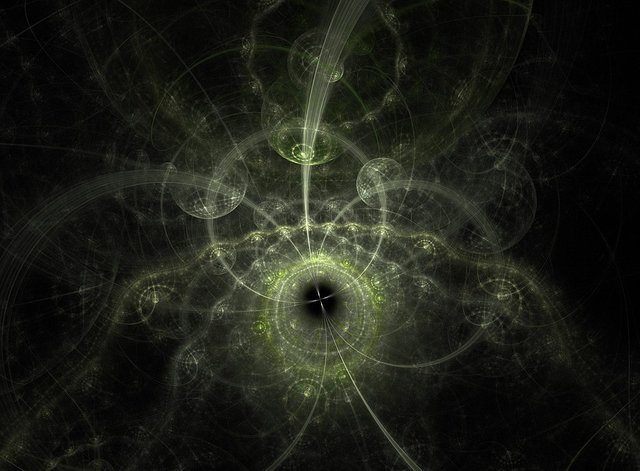The following is adapted from 2 emails that I sent in to a podcast that I listen to. They ended up reading my emails on air. Very exciting!

To start with, I do firmly reject the dualism of Descartes. I don't think there is anything like a soul via which subjective experience is sort of tacked on to a human body. It is far more reasonable that it is an emergent property. A product of particular conditions that allow for our existence over time as a self-organizing system and the transmission of vast amounts of data. This was my default position; what made the most intuitive sense to me.
This can be fun to think about if you extend it. The transmission of electrical impulses from sensory organs to the brain is organized in patterns that can be found elsewhere in nature. The roots and branches of trees is probably a classic example. Does a tree possess some kind of rudimentary subjective experience?

The single tree might be too simple a system if consciousness is an emergent property. But, mycorrhizal (fungi) networks exist that link thousands of trees together, and redistribute resources among them. Is a forest, as an entity, aware? The amount of data that is now flowing online is staggering. Is there something it is like to be an internet? These are almost high school stoner questions, but there is some validity to them.

Things get really weirded up when quantum physics starts messing with us. I'm not a physicist, nor have I ever taken a physics class, so please bear with me. I will try to be coherent.
At the subatomic level, physicists say that things are somewhat indeterminate. There is no way of knowing exactly where a particle in motion will end up, only estimate the various probabilities of how it might behave. The different outcomes can be approximated using what is called a wave function. And when a measurement is taken, the wave function is said to "collapse," and a range of probable outcomes is converted into a single observed outcome.
Now, personally, my first instinct is to say that our technology is not advanced enough to record what's really going on. A particle can't exist in multiple locations at one time, that's absurd. But the people that actually know what they're talking about say that is what is really happening, so I must take their word for it. The act of observation in some way determines that subatomic particles have actual, as opposed to theoretical, existence.

So, somehow consciousness or subjectivity are fundamental to the universe. Did Spinoza say that there was no god, or that there was nothing but God? What if...
There was an 18th century bishop/philosopher named George Berkeley who had a kind of "proof" for the existence of god. His writings are somewhat archaic and don't translate too well to modern English. And further, I don't really agree that he proves a judeo-christian god, by any means. But it makes for a good thought experiment. I'll run the risk of oversimplifying or outright misrepresenting him here.
He was an idealist, believing only in ideas and spiritual beings capable of perceiving those ideas. As for the material world, he would say those things actually do exist, but they exist only inside of minds or as they are perceived. Since our empirical evidence clearly shows a persistence in nature, and things exist even when we aren't looking at them, there must be a mind or spiritual being capable of experiencing all things, and thereby maintaining their existence. That would be God.
He almost appears to anticipate quantum physics. If matter relies on observation to have a determinate existence, the entire universe would need to be perceived in some fashion at all times.
Many have remarked over the years that the universe might be a fractal (a mathematical object made of intricate patterns that repeat endlessly and appears the same when viewed from any distance). That's probably not exactly the case, but we clearly see the same patterns emerging on an astronomical scale as we do under the microscope. Is consciousness occurring on all these various scales in ways we haven't identified yet?
If Spinoza was right, and there is nothing but God, we are part of it. We are God experiencing ourself. Are we nerve endings of the universe?

beautiful post. YES, we are. We are fractals of the same soul, of the same dream, of the same mind. Each fractal is both same and different. Also, there is no univerese or multiverse - but an infiniverse is the accurate term. And time is an infinite loop, eternity loops nto itself. The past is also the future is the past.
Downvoting a post can decrease pending rewards and make it less visible. Common reasons:
Submit
Thank you.
Downvoting a post can decrease pending rewards and make it less visible. Common reasons:
Submit
I think it's a logical leap from "things are indeterminate until observed" to "things need to be observed." A tree falling in a forest with nothing there to hear it may not make a sound, but it has generated the waves necessary to make a sound, had there been an ear there to hear it.
Downvoting a post can decrease pending rewards and make it less visible. Common reasons:
Submit
I'd tend to agree that it is a leap. I'm just trying to grapple with the implications of the descriptions of reality that physicists report. As a layperson, I can't claim to truly understand the physics of quantum mechanics, but that's how the physicists tell the story. On a quantum level, things exist only as a range possibilities. It is not until the act of measurement, or observation, that their state is fixed. Of course, they might be sexing it up to sell books. :)
Downvoting a post can decrease pending rewards and make it less visible. Common reasons:
Submit
Upvoted you
Downvoting a post can decrease pending rewards and make it less visible. Common reasons:
Submit